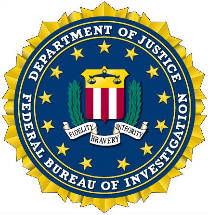
It’s been seven years since the anthrax attacks. The FBI has dropped “hundreds of thousands of agent-hours on the case,” says its website. Nine thousand interviews have been conducted; 6,000 grand jury subpoenas have been issued; and 67 searches completed. The result? On Friday afternoon, the Justice Department settled with biological weapons scientist Steven Hatfill—the FBI’s longtime lead suspect in the case, famously declared a “person of interest” in 2002 by then-Attorney General John Ashcroft—for $5.82 million. The move, skillfully buried in weekend news coverage, amounts to a public confession from the FBI that its anthrax investigation has gone cold.
The Justice Department, far from admitting the colossal nature of its screw-up, refused to admit legal liability for dragging Hatfill’s name through the mud, but, according to a spokesman, settled the case “in the best interest of the United States.” Hatfill continues to press libel cases against the International Herald Tribune, the New York Times, and columnist Nicholas Kristof. He has already reached private settlements with Vanity Fair and Reader’s Digest for their coverage of the case.
The Los Angeles Times and ABC News have both published post-mortems of the FBI investigation in recent days, trying to answer the question of what went wrong. The latter, written by Brad Garrett, a former FBI investigator on the anthrax case, points to inexperienced supervising agents interfering in the case, widespread leaks of confidential information (which sometimes enabled news crews to arrive at the scene before the feds), and the mistake of naming a suspect in the investigation prematurely. “If later the ‘person of interest’ is cleared of wrongdoing, it is unlikely that they can ever fully reclaim their reputation,” writes Garrett. “That only serves to damage the reputation of the FBI.” Remember supposed Olympic Park bomber Richard Jewel? The money he and Hatfill received in recompense from the FBI does not even begin to repair the damage done their names.
With Hatfill in the clear, where do things stand? The Wall Street Journal editorial page takes the FBI to task for focusing on a domestic, “lone-wolf” suspect. “The FBI’s mad scientist theory also fit the agenda of the political left, which didn’t want the trail of evidence to prove state-sponsorship of terror—particularly in Iraq,” says the Journal. So, are we to believe that Saddam Hussein ordered the attacks, à la the conspiracy rantings of Laurie Mylroie, writer of note among the neocon set? “The possibility of a foreign source should never have been discounted,” according to the editorial.
Perhaps not, but still, the odds remain in favor of a domestic source. Aside from lingering belief in Saddam’s invisible hand in the attacks, a more plausible theory takes the classic crime-solving approach: who had the most to gain from the attacks? Answer: scientists in the U.S. governments weapons labs who, thanks to the resulting hysteria, were flooded with research grants. This is the sort of thinking that drew the FBI to Hatfill, of course, but his innocence does not necessarily vindicate his colleagues.
Indeed, according to one of the most recent bits of information to escape the FBI, the investigation is now centered on four remaining suspects. Three of them are associated with the Army’s bioweapons labortatory at Fort Detrick, Maryland—Hatfill’s old stomping ground. From FOX News:
Among the pool of suspects are three scientists — a former deputy commander, a leading anthrax scientist and a microbiologist — linked to the research facility, known as USAMRIID.
The FBI has collected writing samples from the three scientists in an effort to match them to the writer of anthrax-laced letters that were mailed to two U.S. senators and at least two news outlets in the fall of 2001, a law enforcement source confirmed…
… in an e-mail obtained by FOX News, scientists at Fort Detrick openly discussed how the anthrax powder they were asked to analyze after the attacks was nearly identical to that made by one of their colleagues.
There’s been no word of progress on the investigations of any of the four remaining suspects. The FBI’s troubled investigation, which a spokesman characterized as “the largest and most complex” in the agency’s history, slogs on, largely out of public view. But this may change, if Congress has anything to do with it. Rep. Rush Holt, Democrat of New Jersey, told the International Herald Tribune that he plans to press FBI Director Robert Mueller for information about the investigation. “As today’s settlement announcement confirms, this case was botched from the very beginning,” Holt said on Friday. “The FBI did a poor job collecting evidence, and then inappropriately focused on one individual as a suspect for too long, developing an erroneous theory of the case that has led to this very expensive dead end.”
Photo used under a Creative Commons license from Special Agent Oliver.J.B.







